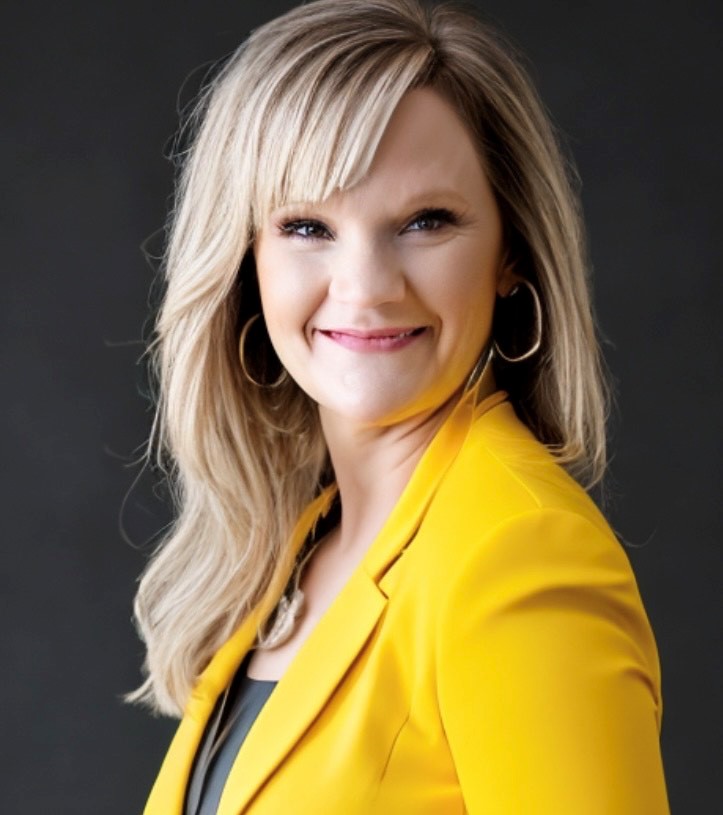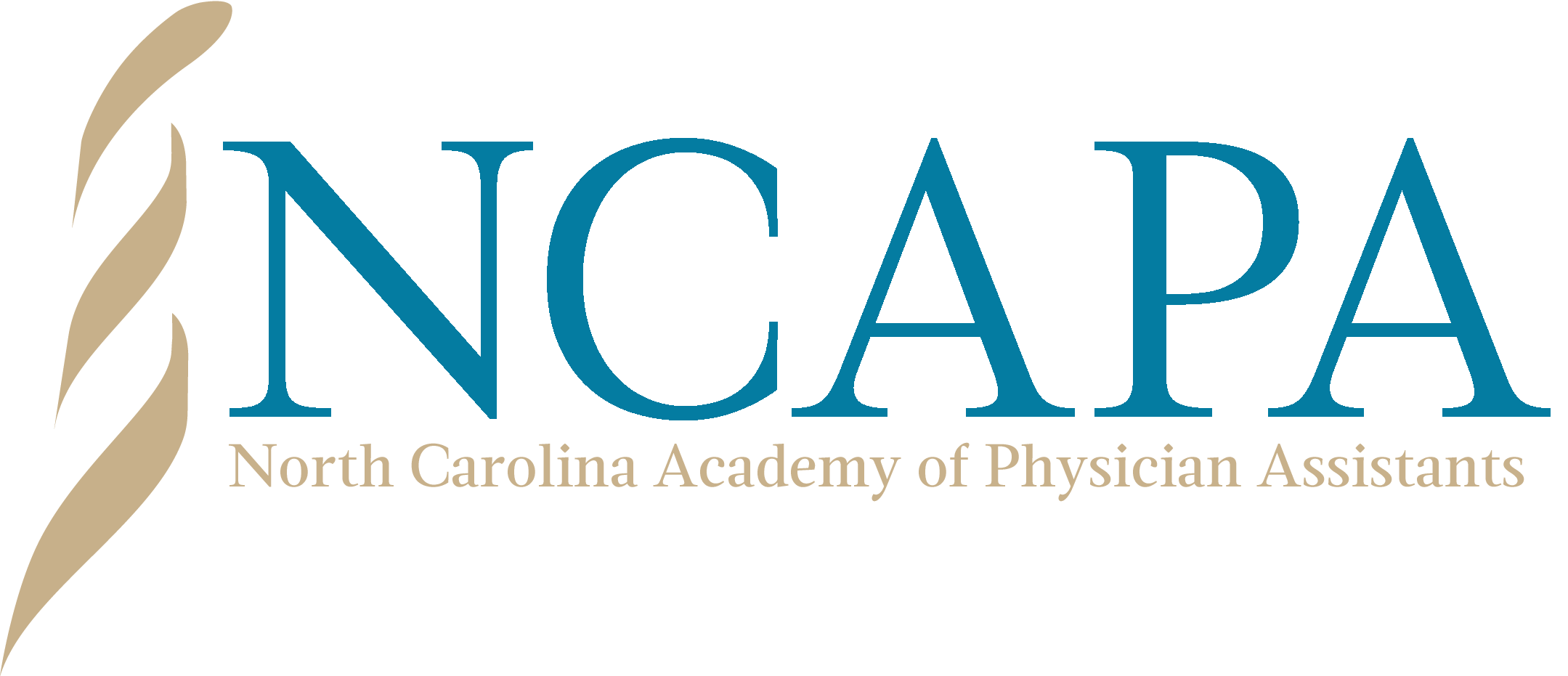For June’s #IamNCAPA Member Highlight, the North Carolina Academy of Physician Assistants (NCAPA) sat down with Goldsboro Family Medicine Physician Assistant (PA) and President of the Central Coastal Plains Association of PAs (CCPAPA), Jennifer Holley, PA-C.
“I hope that we align with the model that allows us to practice to the best of our ability without the fear of losing access to a supervising physician and stranding our patients.”
Jennifer Holley, PA-C

Jennifer started off with a special story of her grandfather, explaining why she felt the calling to become a PA and what eventually led to her applying and graduating PA school at Campbell University.
“In 2013-2014, I was trying to help my grandfather find a primary care provider, and we had a hard time trying to find someone who would take on a Medicare patient. As I called around to all of the primary care providers in our area, we consistently got the same answer: no one is taking any new patients and there were not enough providers, no openings, etc. It definitely spoke to me that there was definitely a need in the community for primary care providers. It definitely propelled me to look into the PA profession, and how to be a primary care provider in the community.”
The NCAPA asked Jennifer on where she sees these gaps within healthcare access in her community. “Oh, it can be any number of things,” she said, “from lack of access to care, to transportation, to health literacy. Health literacy is what I see to be one of the biggest barriers to healthcare.” Jennifer explained that communication is key, as well as being able to adapt in communication styles with each patient. “Many patients may feel embarrassed to ask questions. If the patient really understands the ‘why’ in their treatment plan, and ‘why’ each step is important, they are more likely to be an active participant in their care.”
As the President of the CCPAPA, Jennifer also reflected on the establishment and the need for an NCAPA regional chapter in her area. “Back in the Spring of 2022, NCAPA highlighted North Carolina’s regional chapters and where each chapter was located. I noticed that our area did not have a regional chapter. There was a big hole there, and pretty much within Eastern North Carolina, period. I asked around and reached out to other practicing PAs, and Caroline Purdy, the NCAPA Membership Services Manager, put me in touch with resources to spearhead the chapter. I drafted a proposal together with Drew McKnight, and our first meeting was in October of 2022, with an attendance of 23 people, and I count that as a success!”
Jennifer has also participated in NCAPA’s 2023 PA Day at the Legislature. “This year was my first PA Day at the Legislature, and I feel like I’ve definitely got a high-stake perspective in what’s going on! It was definitely eye-opening.”
However, she unfortunately did not get a chance to meet with her representative – until she took matters into her own hands. “The day that we went, we unfortunately could not get a meeting with my representative, Senator Newton. The timing just did not line up, and we could not get in front of the Senator that represents our very own community and patients,” she told NCAPA. “So, I looked his office up, spoke to his assistant, and was able to get myself and a fellow PA, Regina Gurley, an appointment for fifteen minutes, just fifteen minutes. Well, forty-five minutes later, we left the meeting. [Senator Newton] asked so many wonderful questions where he was definitely engaged, and I truly feel like he understands our position now regarding HB 75/SB 47. Regina Gurley put it so well when she shared in that meeting, ‘We’re asking to continue to do the job that we’re doing without the antiquated language that is in place that prevents us from doing that.’”
On where she stands with PA Advocacy, Jennifer lights up, sharing a personal tie to OTP Legislation. “Obviously, we can’t propel ourselves forward if we don’t advocate. Really just making sure the language is there [for PAs] is very important.”
Jennifer continued, “For me, it becomes very personal, because it circles back to the entire reason that I got into the PA profession, which is access to care. We’re considered an underserved area. Advocacy is important because if we don’t advocate, we’re going to lose access to care, especially in these rural areas where we need it very badly.”
As her first PA Day at the Legislature opened her eyes to progressing OTP, NCAPA asked Jennifer what advice she would give to other PAs that may not know where to start in terms of advocacy. “The ultimate goal in starting a regional chapter was to help facilitate important information, including resources for things like advocacy efforts. I would definitely encourage PAs to participate in their regional chapter, to do what they can within their local level, which ultimately feeds up to the state level in Raleigh. I think just asking for help is the best place to start. I was really shocked at all of the things you can do when you simply ask.”
Before the interview ended, Jennifer was asked on her hopes for the PA profession in the future. What would she like the PA profession to look like?
“I hope we see the profession aligning with other states who are championing the PA profession, and aligning ourselves with what OTP promotes. North Carolina is the birthplace of the PA profession, and we need to be setting the tone. I hope that we move towards something like OTP so we can have more providers and greater access to care. I want to ultimately reach the point where a patient, maybe someone like my grandfather, can call someone and have a primary care provider within a reasonable amount of time and little to no barriers.”
And if she were not a PA, what would we see Jennifer doing instead?
“If I could do anything in this world, I would probably do something with Christian music and ministry work and being able to go out and motivate other people to find their calling in their life,” Jennifer smiled and laughed, “And maybe be able to sit at the beach for four hours a day.”

